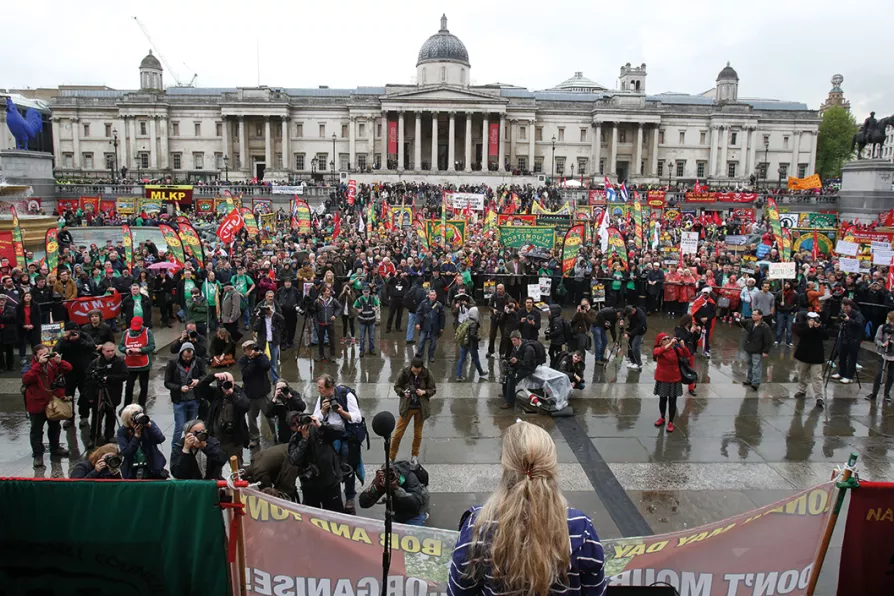Labour prospects in May elections may be irrevocably damaged by Birmingham Council’s costly refusal to settle the year-long dispute, warns STEVE WRIGHT

 VIBRANT: A May Day rally in Trafalgar Square, London
VIBRANT: A May Day rally in Trafalgar Square, London
IN RECENT decades pop songs from the Mamas and the Papas and the Boomtown Rats have reminded us that Monday is not the most popular day of the week.
Indeed before industrial capitalism got a firm grip in Britain, it was common for artisan workers whose weekend consisted only of the Sunday to take Monday off, sometimes extending into Tuesday as well.
The practice was known as Saint Monday. It may surprise people in 2023 that Peterloo in August 1819 and the Chartist protest for the vote on Kennington Common in April 1848 both took place on Mondays.

The government cracking down on something it can’t comprehend and doesn’t want to engage with is a repeating pattern of history, says KEITH FLETT

KEITH FLETT traces how the ‘world’s most successful political party’ has imploded since Thatcher’s fall, from nine leaders in 30 years to losing all 16 English councils, with Reform UK symbolically capturing Peel’s birthplace, Tamworth — but the beast is not dead yet

KEITH FLETT revisits the 1978 origins of Britain’s May Day bank holiday — from Michael Foot’s triumph to Thatcher’s reluctant acceptance — as Starmer’s government dodges calls to expand our working-class celebrations











